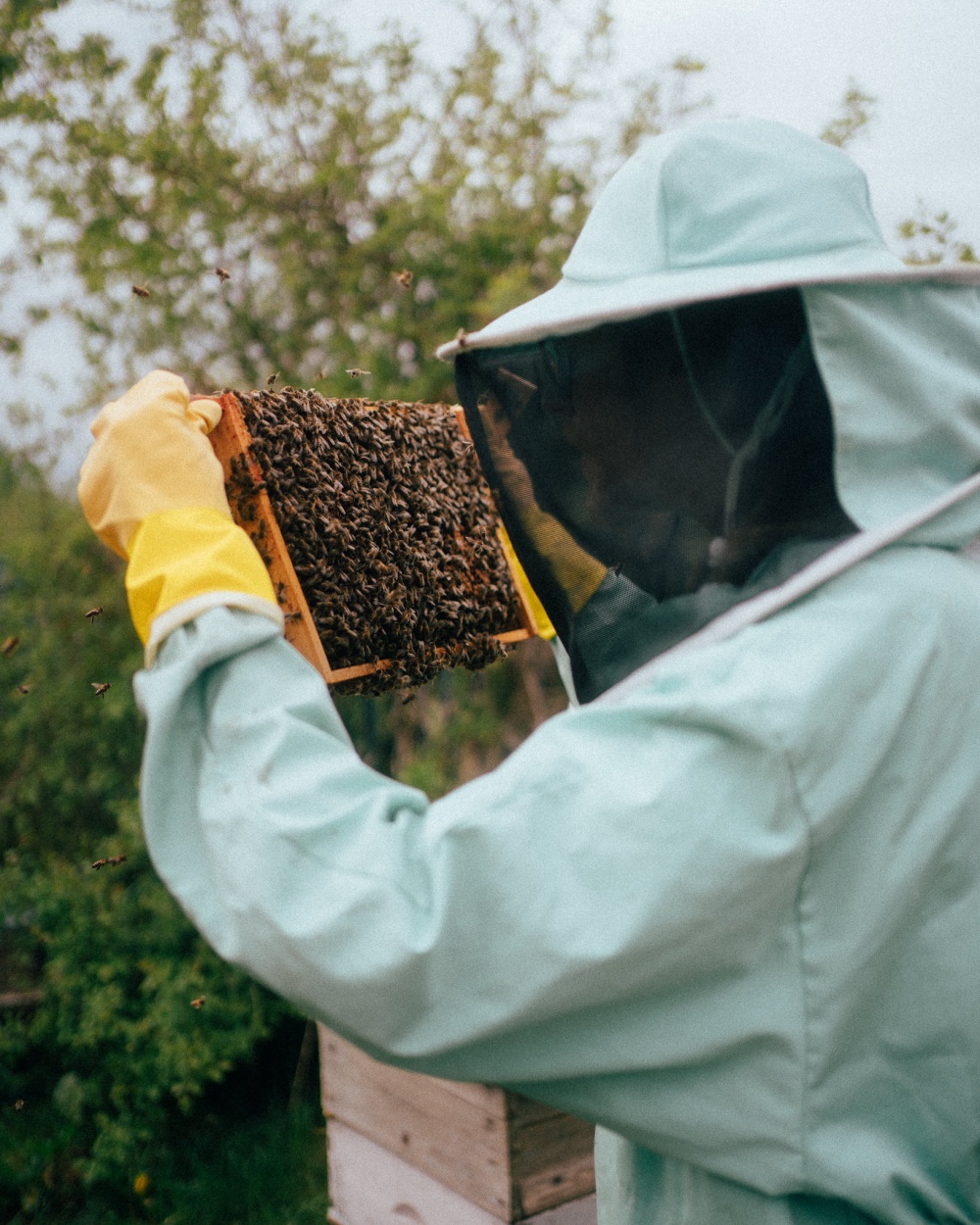Buzzing for Bees

Stephen Douglas has set up a community beekeeping project to manage colonies of honeybees throughout the summer, whilst promoting disability inclusion and mental wellbeing

What are the aims of the project?
We want to reduce social isolation within the community, promote disability inclusion and improve mental health and well being – and I really think it’s achieving that. The project is giving people an opportunity to come together for a common cause once a week, and is an excuse to get out of the house after so long inside. It’s a real chance to chat with others in the community, as well as learn a new craft.
Beekeeping can be as basic or as intensive as you want. Some people come along for the social side, whilst other members are really starting to read up on the insects and getting into the nitty-gritty of what honeybees really do. Inspecting the bees and building the hives has given members an opportunity to communicate with others, and problem solve together. There were some participants who came on board without having done anything like this before and at the beginning they were very nervous.
How did you get involved with bees?
I’ve been a hobby beekeeper for a number of years down at the Meadow Well Connected Community Centre and I started to research and learn about beekeeping with Newcastle and District Beekeeping Association. I have a background of working with people and communities and I wanted to bring both these passions together.
What is the Busy Bee community project all about?
The project started to take form around March this year and I initially had to use Zoom to connect with the members of the group and teach the theory of beekeeping online. I was doing presentations most Saturday’s on the anatomy of honeybees, the life cycle of the bee and the hives. When lockdown ended, the excitement started and we were allowed to meet at the Community Centre where the first phase was assembling the beehives. There was a lot of woodwork involved, which was a great opportunity for those who hadn’t had a chance to take up the skill, and it allowed for a natural problem solving amongst the members – most of whom were strangers to each other. We got the bees from The Travelling Bee Company in Gateshead, and we now have 10 colonies at the centre. The community beekeepers have since been learning how to inspect the beehives and the honeybees.
How did the project come about?
It came about from seeing a post on social media from Spacehive (a crowdfunding platform for projects aimed at improving community spaces). It was a really easy process to set up a crowdfunding page and I initially asked family and close friends to help out with support, but after a couple of weeks I had emails and pledges from people I didn’t know, and others from the local community giving me money in support of the project. North of Tyne Combined Authority then donated over £3,000 which was obviously a massive boost for the campaign, leaving the final total over £5,200.
After meeting our fundraising target, I started recruiting members and I got an overwhelming response – with around 50 people applying to be beekeepers. However, my goal was to recruit people who didn't just want to be beekeepers, but wanted to be involved in a community project. I wanted to make the group as diverse as possible, to really represent our community – I got people from all different backgrounds, people who identified as having a disability or additional needs, some who were employed or in education, and those who weren’t in either. I wanted to best represent a greatly diverse community.
What opportunities has this project given to those involved?
Some people may decide to take up beekeeping as a profession in itself, whilst others may take the skills of communication, woodwork and problem solving into other areas of life. So, once this project comes to a close at the end of summer, these members will hopefully have the confidence to go out and do other community projects like this one, and have the social skills to do so. The project is a great place for people to come together – it’s something I’m really passionate about and probably why I like bee’s so much. I think as a society we can take something from the bees as they all work together in their hive and colony – we can take a lot from them in that sense.
What advice would you give to those who want to follow in your footsteps and start their own community project?
I’d say go for it! It’s a great thing to be able to give back to our communities. I’ve personally got a lot from this project already, and the support and help from Spacehive has been great. The platform doesn’t give to existing organisations, but rather empowers people, helping them raise funds and flesh out ideas for their own community projects.
What’s next for you once the Busy Bee project ends?
This campaign has actually encouraged me to set up a community interest company called Pure Buzzin. The aim is to continue doing community-lead beekeeping projects for more people to get involved and benefit from the craft. I want to create communities through beekeeping which will continue to promote disability inclusion, improvement of metal health and wellbeing, and reduce social isolation.
Visit communitybeekeeping.co.uk to find out more about how to get involved.







